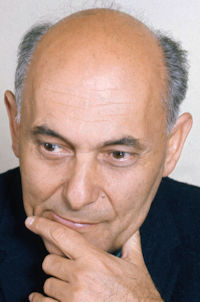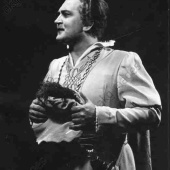Those of us who had heard Victoria de los Angeles’s radiant performance as Eva in “Die Meistersinger” some years ago at the Metropolitan had high anticipations of her first Elisabeth in “Tannhäuser,” and we were not disappointed. Vocally, her approach to the role was lyrical throughout, even in the “Dich, teure Halle,” and the ravishing sounds she produced all evening were a tribute to Wagner’s vocal writing as well as to her own artistry.
In the ensembles, her voice soared out with no trace of strain. Hcr German, while not without a trace of accent, was beautifully enunciated and projected, as are all the languages sung by Miss de los Angeles. And her acting was thoroughly convincing. She does not probe as deeply into the mystique of the character as does Leonie Rysanek (her Elisabeth is pathetic rather than tragic), but on its own terms it is a winning portrayal. Miss de los Angeles is scheduled to sing this role at Bayreuth next summer and she should triumph in it. By that time she will doubtless have overcome her slight stiffness and self-consciousness in the Prayer. This performance marked her return to the company this season and she received a heartfelt welcome.
Walter Cassel was heard as Wolfram for the first time at the Metropolitan. He brought to the role his invariable dramatic sincerity and vital approach. Mr. Cassel should work to improve his German diction, for his performances in the German repertoire are so admirable in other respects that he should bring his pronunciation and enunciation of German up to the same level. He was warmly applauded.
Teresa Stratas, in her first appearance as the Shepherd, sang her difficult ditty very charmingly. The rest of the cast was familiar except for Loretta DiFranco as one of the Pages and Mr. Solti again conducted with sensitivity and tireless concentration.
Robert Sabin





